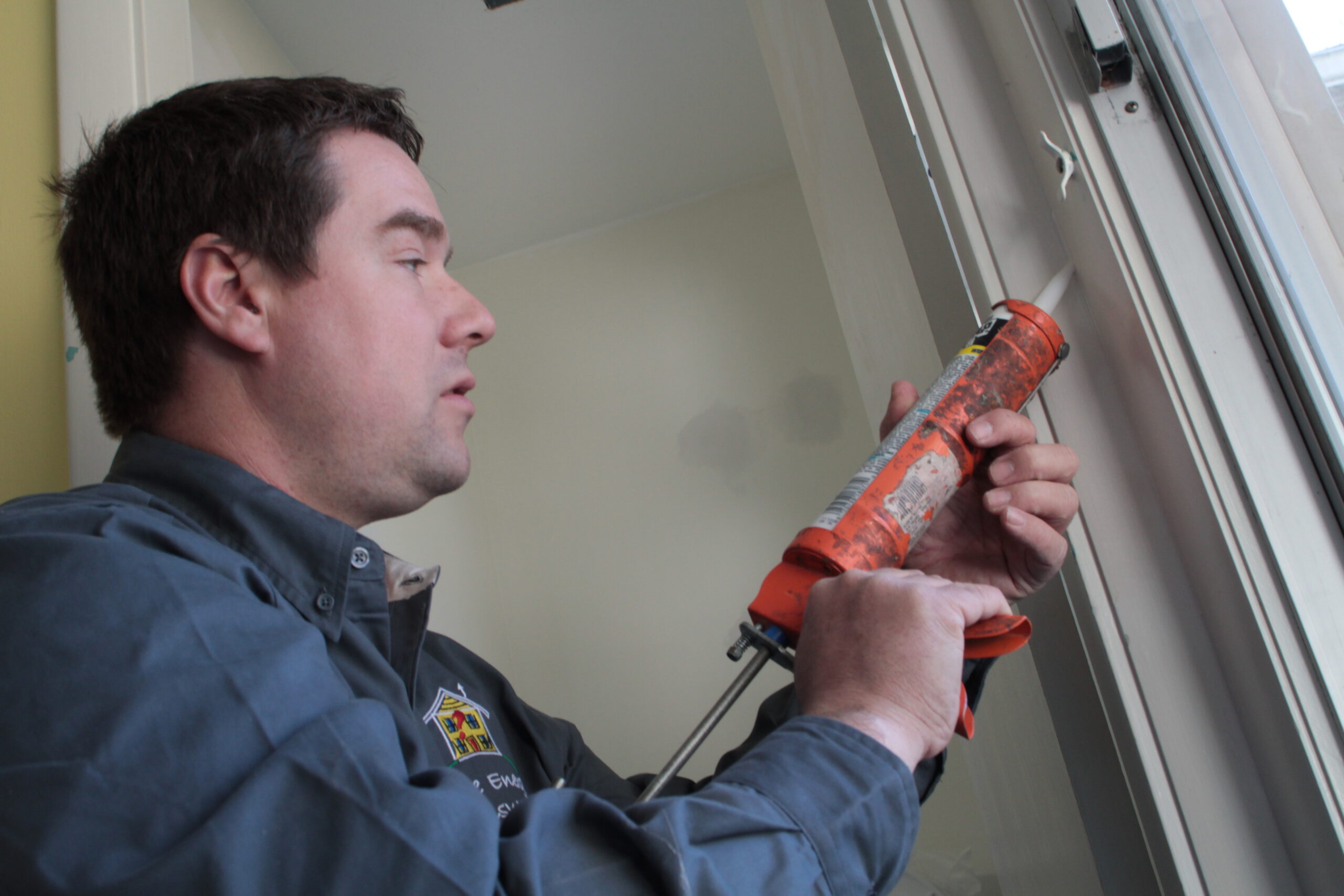Blog
Air Sealing Can Help Save Money and Energy

Recent updates to Maine’s Building Energy Codes have placed a renewed emphasis on constructing and maintaining energy-efficient residential and commercial buildings, including the need to thoroughly seal the buildings to prevent the loss of warm air and the entry of cold air in the winter, as well as to maintain cooler air in the summer. Measures to increase “air sealing” of existing buildings can also provide significant benefits.
What exactly IS air sealing? It may help to think of it as “draft sealing”— stopping the flow of air leaking into and out of your house or building. Air sealing is one of the most economical and easy ways to lower heating bills, and improve the comfort of a building — ridding it of chilly drafts.
Air leaks come in all sizes — from obvious gaps to invisible channels (where cold air infiltrates through the building, follows plumbing or ductwork, and then resurfaces through recessed lighting, sliding doors or electrical outlets). For instance, cold air can enter your house at least 19 different ways, according to this schematic by the Department of Energy.
Each individual leak may be small, but their collective impact can be sizable – in many homes, equal to having a window open year-round. 
While minor air sealing like caulking and weather-stripping can be done yourself, consider an energy contractor for major air sealing. Many contractors combine air sealing with a home energy assessment, in which a qualified energy advisor performs a blower door test and other checks to locate air leaks. The energy advisor’s assessment can identify priorities for air sealing and many can be addressed immediately. They can also investigate the need for proper ventilation.
Efficiency Maine offers a $500 rebate for air sealing combined with an energy assessment. Enhanced incentives up to a $600 value for air sealing with an energy assessment are available to low-income Mainers. Visit the Efficiency Maine website for more details. To find an air sealing contractor near you, click here to use our Vendor Locator.
For contractors, the energy provisions of Maine’s new building codes took effect on July 1, 2021, and will apply to all new building construction in Maine. A summary of the residential provisions of the new building energy codes can be found here. The provisions for commercial buildings can be found here. To learn more about the new building energy codes, visit Efficiency Maine’s website at https://www.efficiencymaine.com/building-energy-codes/.
To subscribe to Efficiency Maine’s blog page, please click here.
